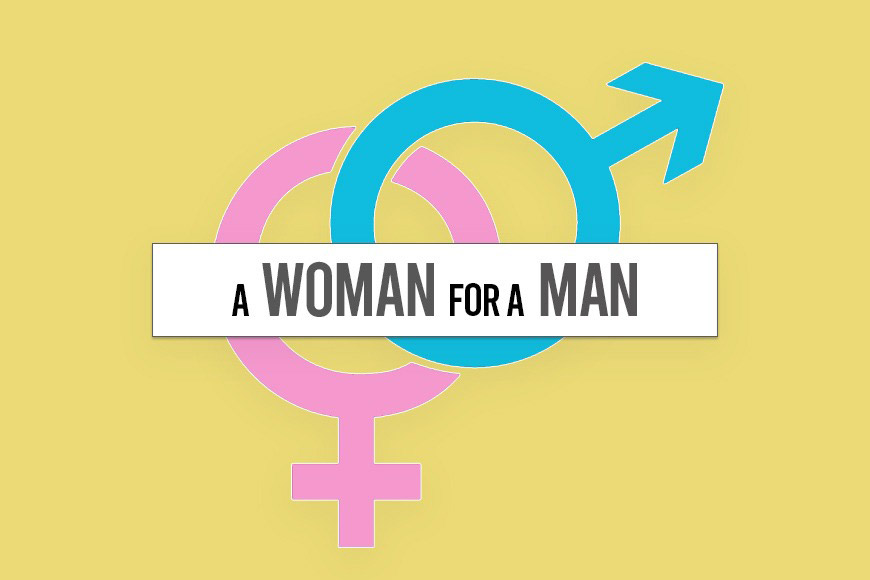On Women’s Day, here’s a woman who speaks for men’s rights

“Established in 2017, the All Bengal Men’s Forum (ABMF) is Bengal’s first hub for the health and well-being of boys, men and fathers. The centre is an open, inclusive and safe space, providing:
i) Therapy and counselling
ii) Peer support
iii) Legal clinic
iv) Fathering programs and
v) Mentorship and support services for male victims of trauma and violence.
We provide services, research, advocacy, thought leadership, outreach and public education on all aspects of men’s issues.”
This is how the All Bengal Men’s Forum advertises its services on its website. As perhaps the only organisation in Bengal that talks about all aspects of men’s rights. And why are we writing about them on International Women’s Day? Because at the head of ABMF is a woman, its founder-president Nandini Bhattacharya, displaying women’s empowerment of a different kind altogether.
As a woman speaking up for men’s rights, did she never have to face ridicule or opposition? “Honestly, I have received nothing but support, particularly from women, as well as from the legal fraternity and even the police. The few snide remarks that have come my way were from men!” In fact, Bhattacharya has no personal ‘trigger’ linking her to ABMF.
Armed with a master’s degree in Sociology and an MBA in personnel and industrial management, Bhattacharya spent several years as a PR and HR consultant before setting up ABMF in 2017. “Among our focus areas are legal help for men, particularly their right to their children in case of divorce, since we have come across many mothers who withhold this right from their ex-husbands. In fact, they use their children as a blackmailing tool and even demand money or property from the father in exchange for visitation rights,” she explains.
Her (mostly male) team has also handled several instances of men who have been falsely implicated in domestic violence or 498A (a husband and his relatives subjecting a married woman to cruelty) cases. The perceived ‘social stigma’ and ‘shame’ make many men isolate themselves from society, says Bhattacharya, in which case ABMF offers them psychological counselling as a first step, before the legal hurdles can even be approached. “In my experience, men who are truly guilty of these crimes against women don’t approach us at all,” she adds. The problem, she says, is that most men aren’t aware of the legal technicalities of a 498A complaint, for instance. “Even now, the popular perception is that as soon as a complaint has been filed, the man can be picked up and jailed. And yet, the actual law is so easily available online.”
Part of the problem lies in the fact that Indian law makes practically no provisions for male victims of domestic violence or marital cruelty. While that would require policy changes beyond the scope of ABMF at present, the organisation’s legal cell does advise clients about every possible legal recourse available to them.
In 2007, the Delhi-based NGO Prayas, along with Unicef and the Ministry of Women and Child Development, conducted a study on child abuse in India across 13 states, which found that 53 percent of the 12,447 children surveyed had been sexually abused. And of these, 53 percent were boys. Yet another survey conducted in 2017 by activist Insia Dariwala among 160 male survivors of sexual abuse found that 84.9 percent had not reported the abuse to anyone, primarily out of shame.
Yet another area where men find it difficult to seek help is sexual and reproductive health. Where women have gynaecologists, men have andrologists, though the term is so obscure as to be almost unheard of in India. “Even andrologists with proper degrees, some of them from abroad, are clubbed under the urologist category,” says Bhattacharya. “And if a problem becomes too acute, men are referred to a ‘sexologist’, where the question of shame and stigma comes in all over again. Somehow, male biological problems are swept under the carpet, and this manifests itself in psychological disorders if not dealt with in time.”
As a woman speaking up for men’s rights, did she never have to face ridicule or opposition? “Honestly, I have received nothing but support, particularly from women, as well as from the legal fraternity and even the police. The few snide remarks that have come my way were from men!” In fact, Bhattacharya has no personal ‘trigger’ linking her to ABMF. “Growing up, I never encountered any instances of men being persecuted in my immediate environment. Even when it comes to ABMF, our two vice-presidents are happily married, our two joint secretaries are happily married, and our treasurer is a confirmed bachelor,” she laughs. On a serious note, though, she adds that the organisation does include quite a few male victims of abuse in executive positions, and a few women in their ‘Women for Men’ cell.
Also read : When marriage and job promises are used as baits
Just in case you think wives are the only people who traumatise men, there have been several cases when ABMF has been approached by men desperate to break free of exploitation at the hands of mothers and sisters, too. Allied to this is the question of male sexual abuse. In 2007, the Delhi-based NGO Prayas, along with Unicef and the Ministry of Women and Child Development, conducted a study on child abuse in India across 13 states, which found that 53 percent of the 12,447 children surveyed had been sexually abused. And of these, 53 percent were boys. Yet another survey conducted in 2017 by activist Insia Dariwala among 160 male survivors of sexual abuse found that 84.9 percent had not reported the abuse to anyone, primarily out of shame.
This year, the International Day of the Boy Child, observed every year on May 16, will focus on what happens to the male offspring of female convicts. In association with Kenyan advocate and activist Rosemary Muthoni, ABMF plans to hold events to popularise the day.
“Given the difficulty that most men face in speaking up in such situations, I believe women should come forward and speak for them. The popular saying is that ‘behind every successful man, there is a woman’. Does the same not hold true for the men behind successful women? I have received wholehearted support from my husband and in-laws in everything I do. Why not celebrate and publicise that fact?” asks Bhattacharya. “Does it make me any less empowered?”
This year, the International Day of the Boy Child, observed every year on May 16, will focus on what happens to the male offspring of female convicts. In association with Kenyan advocate and activist Rosemary Muthoni, ABMF plans to hold events to popularise the day. “The world over, girl children born to convicts find it easier to be adopted, for instance. Most boys, at least until the age of six, grow up in the prison environment, which leaves an indelible mark on their future,” Bhattacharya says.
On International Women’s Day, Bhattacharya and her team at ABMF want men to break social stereotypes too. “I am absolutely rigid about every woman’s right to respect. In no way will I ever condone abuse of any kind against women. All I say is that if a woman can say ‘my body, my choice’, so can a man. When we speak of rights, let everyone be truly equal.”










